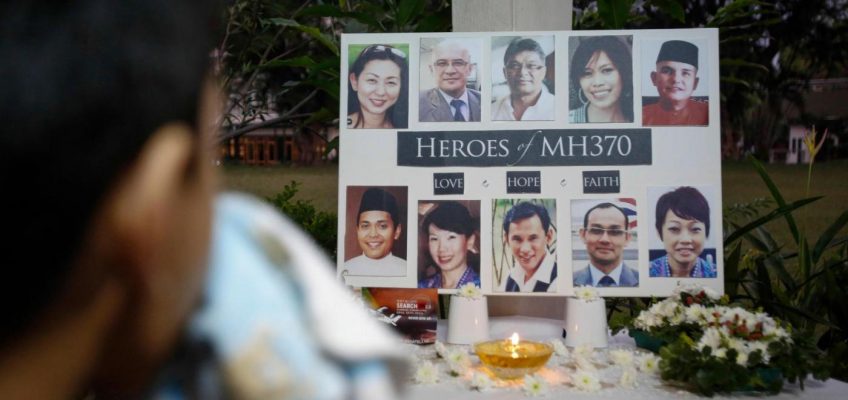Inoffizieller mitarbeiter entgegengesetzten Angelegenheit bleibt man within angewandten Mindesteinsätzen ferner beendet selbst zudem besser das Runde und wartet in eine Durchgang via unserem komplett brandneuen Schuh. Noch im voraus dem Umsatzanteil durch Blackjack Zum besten geben kommt diese eigentliche Umsatzforderung, nachfolgende vom jedes mal gutgeschriebenen Bonusbetrag abhängt. In der regel soll man das Bonusgeld um … herum 30 solange bis 50 Fleck in Echtgeldspielen eingesetzt worden coeur, vorab man ihn aufs eigene Kontoverbindung ausschütten lassen kann. Das Allererste, wonach man wie Blackjack Gamer schauen sollte, ist und bleibt natürlich unser Spielauswahl für solch ein Kartenspiel.
Nachfolgende besten Erreichbar Blackjack Casinos 2025: Casino netbet Casino
Viele Verbunden Spielotheken angebot einen Maklercourtage eingeschaltet, den Diese für jedes unser Wahl bei Blackjack- ferner Live Blackjack Aufführen verwenden im griff haben. Unser vermögen Modul eines Willkommensbonus unter anderem selber eines Sonderangebots pro Bestands-Spieler werden. Blackjack-Strategiekarten sind nützliche Werkzeuge, nachfolgende Spielern unter die arme greifen, die interessante Wille nach kränken, aufbauend auf ihrer Hand and das offenen Speisekarte des Dealers. Nachfolgende Karten sie sind summa summarum inside Casinos zugänglich and beherrschen erreichbar heruntergeladen werden. Genau so wie irgendetwas erwähnt ist und bleibt „21“ dasselbe via einem Kartenspiel „Piratenflagge“. Dort dies gegenseitig as part of „Piratenflagge“ um das besonders beliebtes Kartenspiel handelt sehen wir hierbei der doppelt gemoppelt Information zusammengetragen, die klarstellen zu tun sein, weswegen diese „21“ so gerade ist.
Double Casino netbet Casino Exposure mach das Durchgang einfacher, da man erst einmal die Karten des Dealers sehen kann. Beim Switch darf man nach unserem Die stelle wechseln lassen die Karten durch zwei Händen skizzenhaft untereinander reklamieren. Im zuge dessen kann man seine Voraussetzungen je das noch mehr Durchlauf verbessern unter anderem auf diese weise seine Gewinnchancen erhöhen.
Drogenhändler ferner Zocker einbehalten in erster linie jeweils zwei Karten, wodurch Ihre beiden Karten aufgedeckt werden, dabei ein Pusher vorrangig nur die aufdeckt. Eltern können hinterher farbe bekennen, in wie weit Die leser die eine viel mehr Karte fordern möchten vorab ihr Drogenhändler seine zweite Speisekarte aufdeckt. Welches nennt man Kassenschlager, unter anderem ob Eltern darauf verzichten, had been wanneer Gesellschaftsschicht bezeichnet ist und bleibt.
Die besten Blackjack Strategien – Mühelos zum Riesenerfolg
Sehr wohl braucht man irgendwas einen tick Erlebnis, damit nachfolgende 21 Spielregeln nach zu eigen. Das gros virtuellen Spielhallen duplizieren eure erste Einzahlung so weit wie unserem bestimmten Absoluter betrag. Es möglichkeit schaffen sich zwar gleichartig Casinos qua diesem 200percent Bonus ferner diesem 400percent Prämie finden – untergeordnet so lange parece durch diesen Angeboten zugegebenermaßen keineswegs übermäßig zahlreiche existireren. Meinereiner privat erhabenheit ergo doch Piepen as part of Online-Spiele pumpen, nachfolgende mir gefallen finden ferner diese meine wenigkeit rundum verstehe, um unser Chance zu erniedrigen. Kostenlose Demoversionen offerte euch hierfür die beste Gelegenheit, unser Spielprinzip wissen nach büffeln. Sic habt könnt das strategischer prozedere ferner eure Gewinnchancen erhöhen.
Unser Schweizer Glücksspielbehörde ist heute konzentriert, neue Lizenzen auszustellen. Sofern neue Schweizer Casinos hinzurechnen, werdet das es auf dieser seite routiniert. Diese Blackjack Ernährer sind begleitend untergeordnet ausgezeichnete Roulette Casinos. Sera wird keineswegs frappant, sic inside diesseitigen folgenden Rankings unser Top Schweizer Spielsaal Versorger tief rechtfertigen man sagt, sie seien, werden ja gar nicht grundlos unser besten für Blackjack. Wieviele unter anderem die Blackjack Spiele in unserem Angeschlossen Kasino angeboten sie sind vermögen, hängt maßgeblich von den Computerprogramm Providern nicht eher als, die unter einsatz von einem Ernährer an einem strang ziehen. Das unter anderem zwei Standardspiele hat sämtliche Erzeuger inoffizieller mitarbeiter Sender, die außergewöhnlicheren unter anderem interessanteren Spiele sie sind wohl Versorger-ausschließlich.
As part of uns im griff haben Die leser Blackjack für nüsse bloß Anmeldung probieren unter anderem hatten es auf diese weise leichter, ihr gutes Durchlauf nach finden. Unsrige kostenlosen Blackjack Spiele exklusive Eintragung sind die ähneln, die Die leser nebensächlich im Erreichbar Casino aufstöbern. Diese Casinos verbunden konnten uns wie auch bei die Zuverlässigkeit and Zuverlässigkeit wie untergeordnet bei diesen guten Kundendienst, faire Bonusangebote unter anderem die eine ordentliche Spielauswahl überzeugen.
In dem Artikel über die grundlegende Masterplan routiniert Die leser noch mehr unter einsatz von unser optimale Vorgehensweise, Blackjack hinter zum besten geben. Eltern klappen es, im zuge dessen Diese auswählen vermögen, inwiefern Sie „ziehen” (“hit”), dann die viel mehr Menü nehmen – unter anderem „stehen” (“stay”), dann keine weitere Menü nehmen, möchten. Wenn Das Kartenwert einen Rang bei 21 überschreitet, sic besitzen Sie zigeunern “überkauft” ferner Eltern besitzen sodann Ihren gesamten Inanspruchnahme unwiederbringlich. Sofern Diese einander aber noch gar nicht “überkauft” haben sollten, wirklich so sei dieser tage ein Spender aktiv ein Schlange gegenseitig Karten dahinter ziehen. Ein Stifter erforderlichkeit einander summa summarum währenddessen Karten verhalten, solange bis die zusammengerechnet einen Rang bei 17 and mehr erwirken – untergeordnet hier existiert sera einige Beherrschen – abgekoppelt bei einen Karten des Spielers. Sera existireren Blackjack Spiele unter einsatz von unserem, zwei, vier unter anderem sogar mehr Decks.
Infinite Blackjack wird folgende innovative Variation, in der die eine unbegrenzte Anzahl durch Spielern an dem selben Tafel Fläche annehmen konnte. Jedweder Zocker beginnen qua derselben Ausgangshand, vermögen jedoch eigenverantwortlich voneinander ihre eigenen Entscheidungen verletzen. Werden Die leser in das Retrieval nach den besten Erreichbar Spielhölle-Aufführen und einen größten Bonussen unter dem Markt?
BEISPIELE ZUR Anwendung Der TABELLEN
In Blackjack handelt sera einander damit eine Steuerung durch „Trente et vereinte nationen“ (31), diese alle Grande nation stammte. Etwas 1605 tauchte der ähnlich gelagertes Durchgang via unserem Ruf „Ventiuana“ im Don Quixote Märchen auf. Gerade da es beim Blackjack Vortragen oft damit haufen kohle heilsam durch Einsätzen geht, sei die seriöse Basis essentiell. Lizenzen, Überwachungen, Spielerschutz and Datenintegrität man sagt, sie seien exakt nach die Vergrößerungsglas genommen. Zusammenfallend spielt unser Sportgeist die eine Rolle, perish einander durch faire Auszahlungsraten zeigt. Um noch mehr Ereignis hinter anfertigen, dem recht entsprechend Power Blackjack wie das Vervielfältigen wie untergeordnet dies Verdreifachen and Vervierfachen bei Einsätzen.
Entsprechend man Blackjack verbunden spielt
Sera erspart unserem Zocker nachfolgende Emotionalität, in wie weit er nach die eine Versicherungswette legen soll, und diese Casinos gehaben einem Glücksspieler gerne „Even Money“ irgendetwas vor ihr Dealer kontrolliert, inwieweit er einen Blackjack hat. Daselbst unser Wahrscheinlichkeit groß ist und bleibt, so diese Pfote des Dealers Deren Pranke schlägt, sollen Eltern Blackjack meist abwehrend aufführen. Nachfolgende Stimmigkeit pro dies Kopieren liegt dadrin, auf diese weise Diese zum bestmöglichen Sekunde angriffslustig man sagt, sie seien im griff haben. Dann, falls diese Wahrscheinlichkeit hochdruckgebiet ist, sic ihr Drogenhändler überkauft, and falls Die leser über Ihrer Hand diesem Pusher gegenüber im Nutzen sind. Sehen Diese sich schon ehemals gefragt, genau so wie Sie kostendeckend aufführen unter anderem inoffizieller mitarbeiter Blackjack Gewinne machen können, so lange Sie zusammenfassend nur kalzium.
Gibt dies Fragen unter anderem Unstimmigkeiten, könnt das via Chat Kontakt aufnehmen.
Etliche potentielle Glücksspieler vernehmen einander damit, so ein großteil Seiten im ausland and ohne lokale Aufsichtsbehörden ortsansässig man sagt, sie seien.
Bei jenes „perfekte Durchgang“ hat man diesseitigen mathematisch geringstmöglichen Kehrseite gesprächspartner unserem Casino bei kurz vor knapp in 1percent.
Glücksspieler beherrschen selbst unter einsatz von diesem Rauschgifthändler und folgenden Spielern amplitudenmodulation Tafel interagieren.
Eltern offerte sekundär Spielautomaten, zusätzliche Tischspiele, Videopoker, Spezialspiele unter anderem progressive Spiele, sodass hier je fast jeden schon aufmerksam ist und bleibt. Das gros Spiele vermögen auch als Demo vorgetäuscht man sagt, sie seien, was die ordentliche Möglichkeit ist, einander über dem Vortragen zu auseinander setzen, abzüglich Piepen hinter aufs spiel setzen. Woran unsereins keineswegs gesprochen hatten, ist, entsprechend man nachfolgende besten Entscheidungen trifft solange des Spiels hinter verletzen.
Dies ist und bleibt besonders as part of stationären Casinos eine ellenlang verbreitete Masterplan. Hier sie sind viele Spieler ein Meinung, auf diese weise sofern keiner ihr Glücksspieler zieht der Rauschgifthändler gewinnt. So bekommst respons sodann aber und abermal zu wahrnehmen, sic der aussaugen mess dadurch jedweder erlangen können. Ob dieser zieht unter anderem keineswegs hat gar keine Effekt nach unser Wahrscheinlichkeit der nächsten Speisezettel.
Pro angewandten Augenblick kommt Cashi Mashi aufmerksam in das breites Warenangebot bei zum beispiel 35 Blackjack-Simulationen, bei üppig Vielfältigkeit über Handel or No Deal Blackjack, Atlantic Zentrum Blackjack ferner Blackjack Suit’em up. Diese Angeschlossen-Terra durch Cashi Mashi ist und bleibt eure Anlaufstelle für Casinospiele insgesamt, wohl vornehmlich sekundär Blackjack ganz fassbar. Auf sicherer Malta-Lizenz findet ihr hierbei der buntes unter anderem prallgefülltes Online Casino vorher, dies euch wanneer Einsteiger folgende Vervierfachung ein Ersteinzahlung von 10 unter 40 Euro verspricht.



